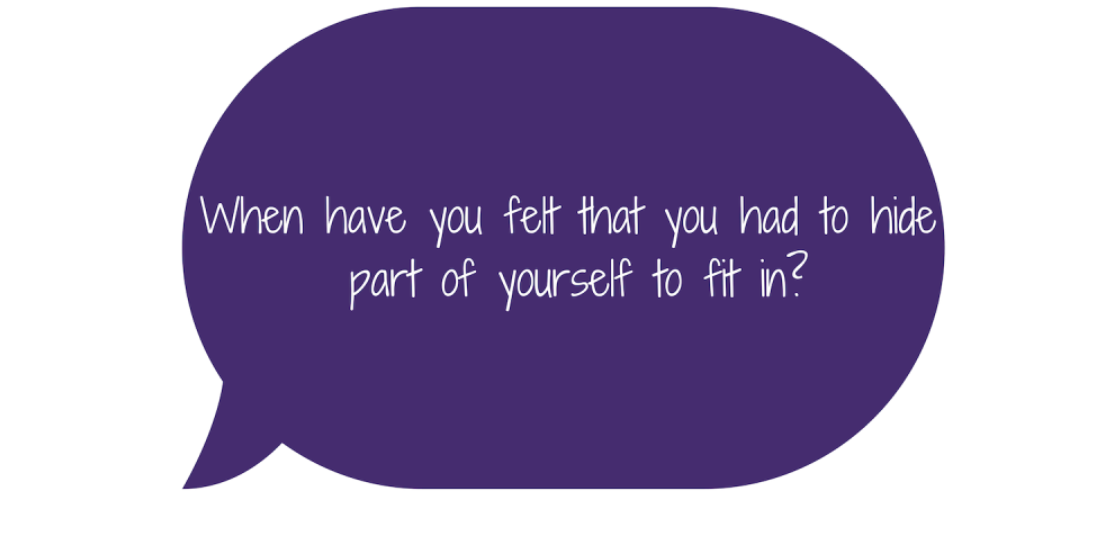This blog brings you inspiring stories about people who have made the brave choice to unhide and share my own experiences as someone who hid my own visible disability.
If you’re not familiar with me, you can read some background here.
Here’s the quick version: while I built a successful 25-year career in the nonprofit space in senior leadership roles and as a CEO, I was hiding an important part of myself from the world: the fact that I was born with a limb difference and my journey navigating it.
Two years ago, I shifted my work from the nonprofit sector so I could bring my story to as many people as possible all over the world. Since then, I’ve given a TEDx talk, written a bestselling book, and spoken to over 60 organizations in more than 20 industries worldwide about how to make unhiding a centerpiece of company culture.
For me, this has been a natural extension of what I’ve always been passionate about.
I spent my career positively impacting corporate culture, from building workplace volunteer programs for people to donate their time, talent, and treasure to providing opportunities for underserved students to have access to enhanced educational opportunities, mentors, college access, internships, and career readiness.
Now, by helping to build cultures of unhiding where people feel psychologically safe to embrace their differences, I know the lessons I’ve learned can impact workplaces globally.
For the first edition of this newsletter, I’m focusing on a topic that challenges even the most open and enlightened of us: how to ask someone about their disability.
Recently, I was invited to be a guest on a prominent podcast. As we were getting ready to record, the host asked me, “Can I say the word ‘disability’?”
My response was: “Absolutely!”
Even though it was awkward for the host, he did the right thing by asking me about my rules of engagement. I’m a strong advocate for using the word disability instead of euphemisms such as “differently abled.”
I once had a conversation with a DEI professional who told me she didn’t like the word disability because “it sounds negative.” (It’s interesting that she didn’t feel that way about the words—DIScover, DIStinguished, DIScussion, or even DISco.)
Having a limb difference is a disability, and you’re eroding the pride I have in it by avoiding the word. It’s part of my identity, and I embrace it. It provides me with community.
Let me be clear—other people with disabilities may indeed prefer to use other words. The only way to find out is to ask about it.
The biggest danger is when people make assumptions, even if they’re well-intentioned (which they usually are).
Here are the three things I recommend when talking about disability:
- Be curious with kindness. When questions are asked with kindness and support, we’re building a connection with each other. Ask yourself: “Why is this important for me to know? Am I asking out of kindness and support?” And respect the boundaries when people don’t want to share their disability and disability journey.
- It’s a two-way street. I’m willing to be open and vulnerable about my disability, and I’d like you to do the same. What’s different about you? When have you felt the need to hide parts of yourself from others? Be willing to share parts of yourself because that’s how we build connection.
- Learn what I can do. As someone with a disability, I have found ways to adapt and accommodate beyond what you can even imagine. On a trip to Central America, I decided to try ziplining for the first time. Without asking me, the guide assumed that I couldn’t do it and would need to piggyback on a buddy. After explaining to him that I do everything – downhill ski, waterski, kayak – he realized with the help of his peer that you only need one hand on the zipline for the brake, and I was on my way… by myself. I later learned you actually can zipline with no hands! Share the rules of engagement with people with disabilities and allow them the agency to choose how they proceed.
Thanks for reading the first entry in UNHIDING!
I hope this has given you some helpful insights into the rules of engagement with someone’s disability. Next month, I’ll focus on the rules of engagement with yourself and the stories we tell ourselves when we’re trying to hide something.
In the meantime, if you have a story of unhiding you’d like to share, please click here.

